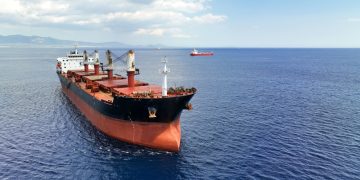Lloyd’s Register’s (LR) FOBAS tested several samples from UK ports, Belfast and Fishguard with Total Sediment Potential (TSP) results exceeding the ISO 8217 specification limit of 0.10% m/m.
The samples were all VLSFO fuels and TSP results ranged from 0.22% m/m to 0.29% m/m. Extended analysis indicated these results were due mainly to extraneous dirt.
According to LR, fuels with high sediments can result in excessive sludge deposition in tanks and throughout the handling and treatment/fuel injection systems. Furthermore, in certain cases the attempted use of such fuels may result in highly compromised combustion leading to engine and turbocharger damage.
In addition to the above, fuels containing a high amount of extraneous dirt can result in heavy loading on purifiers which can lower the purifier plant efficiency with respect to removing harmful contaminants such as aluminium, silicon, and / or water. Purifiers should be monitored and operational adjustments made as necessary.
If ships are planning to bunker in these ports, LR recommends that suppliers are advised of the concerns regarding the stability of the fuel in the area, and that they provide additional reassurance that they will adhere to the ISO 8217 requirements for the grade ordered.
Additional attention should be given to the collection of bunker samples. It should be ensured that all parties have witnessed the sampling process and have signed witness forms accordingly, and that the supporting documentation includes records of all the samples considered representative of the fuel as loaded.


































































